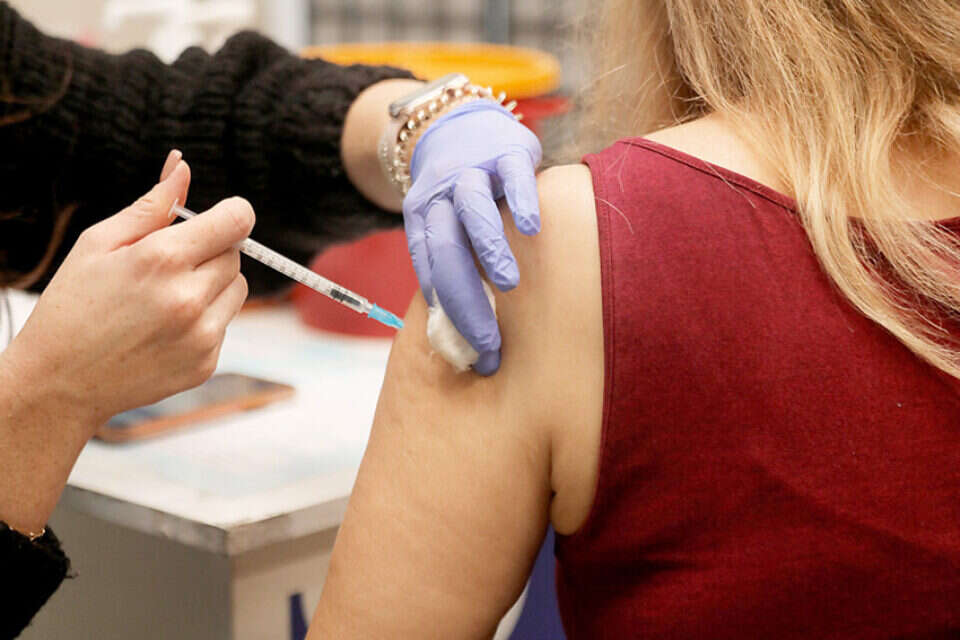Cervical Cancer Awareness Month is celebrated in Israel and around the world this month, and data collected among cervical cancer patients - the fourth most common cancer in Israel - in Israel shows a worrying picture.
Almost 90% of the women who got cervical cancer knew almost nothing about the disease before they were diagnosed, 92% were not vaccinated against cervical cancer before they got sick, 60% had to quit their jobs or go on sick leave after they were diagnosed.
Recent data from the Ministry of Health shows that in 2019, 1,381 women were diagnosed with precancerous tumors in the cervix and another 262 women with cervical cancer.
98 women died from the disease.
Cervical cancer is responsible for almost 10% of cancer cases in women and about 2% of all cancer deaths.
60% had to quit their jobs or go on sick leave after being diagnosed. Illustration, photo: GettyImages
About 3,000 women get gynecological cancers every year, and the association "Habit Shel Bar" provides information and support to patients and works to exercise their rights and raise awareness.
From a questionnaire administered by the organization to 116 cervical cancer patients, ages 21 to 72, it appears that there are many information gaps regarding the disease, and even after the diagnosis, the women do not receive the full information from the medical teams.
68% of the respondents answered that they "knew nothing" about cervical cancer before the diagnosis and 21% answered "I knew little".
Although this cancer affects fertility, only half of the female patients answered that the doctors talked to them about their fertility before undergoing treatments or surgery, and only about a quarter (27.5%) said that they talked to them about the issue after the treatments.
Only 10% of patients give birth to children after becoming ill (the figure also includes surrogacy or fertility treatments).
The most intimate place
"The survey raises alarming question marks that may indicate an urgent need to improve effective communication between the care providers and the patients. It may indicate a lack of sufficient awareness of the human papillomavirus and the possibility of vaccinating against it and cervical cancer," says Bar Levy, chairman and director of the association "Bar's house".
A woman being tested for cervical cancer, photo: GettyImages
According to her, "breast cancer has about 5,000 patients a year, and gynecological cancer has about 3,000 patients. We want to normalize the discourse and reach the same place of awareness for early detection as in breast cancer. From the survey we saw that women are very ashamed and afraid of the disease, perhaps because it is the most intimate place Ours as women. In the survey we saw that 45% are ashamed of the disease and 50% feel lonely - and this figure continues to accompany the patients."
In the latest medicine basket, the financing of tests for the early detection of cervical cancer was extended also for women over the age of 55. The association welcomes the step and notes that 42% of those diagnosed are over the age of 55. Also included in the medicine basket is the vaccine against the papilloma virus for men and women up to the age of 26.
were we wrong
We will fix it!
If you found an error in the article, we would appreciate it if you shared it with us














/cloudfront-eu-central-1.images.arcpublishing.com/prisa/IGZ7GOCXZ5GUPAQ2HWGK6Z76BU.jpg)